HND Invites New HRT Head to Drop All Lawsuits against Journalists, Media
ZAGREB, 3 November, 2021 - The Croatian Journalists Association (HND) on Wednesday welcomed the fact that Croatian Radio-Television (HRT) has dropped suits against the HND and the chair of its Croatian Television (HTV) branch, inviting new HRT director-general Robert Šveb to drop all suits against journalists and media.
The HRT has dropped a lawsuit it filed on 24 December 2018 against the HND and Sanja Mikleušević Pavić, an HTV journalist and president of the HND's HTV branch, over a September 2018 statement in which the branch condemned the resale of tickets to the World Football Championship, among other oversights, the HND said.
The HRT demanded HRK 200,000 in damages from the HND and HRK 50,000 from Mikleušević Pavić.
The public broadcaster has also dropped a lawsuit against the HND filed during the time of former HND president Saša Leković.
Incumbent president Hrvoje Zovko said dropping the suits was "a good move."
According to the HND, the HRT has not officially dropped the suits it filed against Zovko in which it demands HRK 250,000. In two of them, the HRT accused him of defamation after his claims about censorship, and in the third it accused him of appropriating HRT equipment.
HRT Drops Lawsuits against HND, Zovko, Mikleušević Pavić
ZAGREB, 3 November, 2021 - Croatian Radio-Television (HRT) has dropped lawsuits against the Croatian Journalists Association (HND), its president Hrvoje Zovko, and the president of the HND's HRT branch, Sanja Mikleušević Pavić, the public broadcaster said on Wednesday.
HRT director-general Robert Šveb held talks with HND representatives and said the HRT was open to dropping the lawsuits, which was eventually done, the HRT said, adding that the HRT thereby wished to underline the intention to cultivate a dialogue with the HND.
The HRT demanded HRK 250,000 in defamation damages from Zovko as well as HRK 200,000 from the HND and HRK 50,000 from Mikleušević Pavić over a statement in which she, as president of the HND's HRT branch, complained about "the manipulation and irresponsible conduct of a privileged minority."
Croatia's Coronavirus Update: 4,573 New Cases, 41 Deaths
ZAGREB, 3 November, 2021 - In the last 24 hours, Croatia has conducted 13,031 coronavirus tests, and 35% of them, that is 4,573 have returned positive, while the COVID-related death toll has risen by 41 to 9,332, the national COVID-19 crisis management team reported on Wednesday.
Currently, there are 22,700 active cases, and of them 1,634 are hospitalised patients including 198 COVID patients placed on ventilators.
As many as 23,416 people are self-isolating.
Since the first registered case of the infection with the novel virus on 25 February 2020, Croatia has conducted 3,126,230 tests, and of them, 476,832 have turned out to be positive. To date, 444,800 people have recovered from this infectious disease, including 2,394 recoveries in the last 24 hours.
During the vaccine rollout, over 3.6 million vaccine doses have been administered.
So far 1,916,565 people have received at least a shot, and of them over 1.8 million have fully been vaccinated, which is 53.30% of the adult population.
Croatia and Dubrovnik among Most Desirable Travel Destinations in UK
ZAGREB, 3 November, 2021 - Croatia and Dubrovnik are among the ten most desirable destinations on the British travel market, as voted by readers of Wanderlust travel magazine, which has awarded them in the category of the most desirable closer countries and cities to visit, the Croatian Tourist Board (HTZ) said on Wednesday.
The awards were presented as part of the World Travel Market (WTM) show in London, and the awards for Croatia were accepted by the head of the HTZ London Office, Darija Reić.
Croatia ranked sixth among the top ten desirable closer countries and Dubrovnik placed fifth among the most desirable closer cities.
The list of the most desirable closer countries was topped by France, Italy, Iceland, Greece and Spain. Croatia was followed by Portugal, Georgia, Norway and Austria.
Among the top 10 closer cities, Dubrovnik was behind Lisbon, Seville, Tbilisi and Marrakech and ahead of Bologna, Tallinn, Salzburg, Stockholm and Saint Petersburg.
Reić said she was delighted that Wanderlust leaders had recognised Croatia and Dubrovnik as exciting and desirable destinations, while HTZ director Kristjan Stančić said that these were important honours for the Croatian tourist industry and an encouragement to make it even better, more successful and more creative in the years ahead.
Ex-Zagreb Mayor's Associate says Tomašević's Claim about Zagreb's Debt Scandalous
ZAGREB, 3 November, 2021 - Vice-president of the Zagreb branch of former mayor Milan Bandić's BM 365 - Labour and Solidarity Party, Slavko Kojić, on Wednesday described Mayor Tomislav Tomašević's claim that the amount of the city's debt was equal to its revenue, far above the 20% limit permitted by law, was scandalous.
"The city cannot owe more than 20% of its revenue, that is a gross lie the mayor said in the City Assembly," Kojić, a former long-lasting head of the city's finance department during Bandić's term, claimed at a news conference.
He went on to say that the city could not have borrowed an amount exceeding 20% of its revenue because borrowing was conditional on the Finance Ministry's consent.
The 20% limit does not refer to the total debt but to the debt due for payment in a given year, he said.
Kojić recalled that at its last session the City Assembly made a decision to borrow HRK 336 million, adding that had the 20% limit been exceeded, the Finance Ministry would not have approved the new borrowing.
He noted that the Standard&Poor's rating agency would not have changed Zagreb's credit rating of BB- to one with a stable instead of negative outlook if Zagreb's debt amounted to 100% of its revenue.
Measuring the debt of the city public transportation company ZET, the multiutility conglomerate Zagreb Holding and the City of Zagreb against the revenue or budget of only one of them, in this case, the City of Zagreb, without taking into account budget users, is ridiculous, said Kojić.
He noted that data on ZET's debt in the amount of HRK 900 million, Zagreb Holding's debt of HRK 4.9 billion and the City of Zagreb's debt of around HRK 2.4 billion did not depart significantly from what had been published in the spring.
Kojić admitted that the problem of the capital city's finances was not small and that the former city administration had "many sins" but that the main cause of the problem was legislative changes due to which Zagreb had been shortchanged by more than seven billion kuna over a period of six years.
Finance Ministry says Cost of Combatting COVID Exceeds €5.3bn
ZAGREB, 3 November, 2021 - Finance Minister Zdravko Marić told the parliament on Wednesday that the total cost of combatting the COVID pandemic has exceeded HRK 40 billion (€5.3 billion) from the state budget alone in just under two years, however, the effect of COVID is a one-off event, regardless of how strong it may be.
The majority of costs relate to job-keeping measures, directly or indirectly, then taxes, contributions, everything the state took upon itself, said Marić presenting this year's budget revision.
The revision envisages an increase in budget revenue of HRK 3.3 billion to HRK 153.6 billion and expenditure by HRK 6 billion to HRK 173.3 billion.
The budget gap is expected to amount to HRK 19.7 billion or 4.7% of GDP while the general government debt is expected at HRK 18.9 billion or 4.5% of GDP.
Marić confirmed that the revised estimates of GDP growth for this year from the initially planned 5.2% have been increased to about 9%.
When observing all GDP components, with the exception of investments and private investments, we have a significant increase in all categories, underscored Marić and added that with regard to investments, they will be the main drivers of overall economic growth in the years that are to follow.
Average annual inflation at 2.4%
Marić presented data related to price trends and inflation. Regardless of the past few months and accelerated and visible inflation, the projected average inflation rate for this year is 2.4%, he said.
The minister underscored that the plan is to reduce the public debt to GDP ratio to 83.1%.
"Even though we have revised the deficit upward from 3.8% to 4.5%, this year we expect a greater-than-expected growth rate and as a result, the public debt to GDP ratio will be set again at 83.1%," he told the parliament.
The minister recalled that the public debt was slashed for four years in a row by almost 12 percentage points of GDP cumulatively.
The pandemic and the 2020 devastating earthquakes to some extent have as one-off events increased the public debt to GDP ratio to 87.3% and erased the effect of four years, said Marić and underscored that "had we not done what we did in those four years, our public debt would have exceeded 100% of GDP."
"Those 4.2 percentage points, compared to other countries have ranked us in the top 3," boasted Marić.
That result, he added, needs to be highlighted not just in numbers but in the fact that we have done and are doing everything to improve the finances and the growth rate and decrease in the public debt to GDP ratio indicate that the effect of COVID is a one-off event, regardless how strong it may have been, he concluded.
(€1= HRK 7.5)
Croatian Athletes Awarded €887k for Olympic and Paralympic Medals
ZAGREB, 3 Novmber, 2021 - Croatian athletes won 15 medals at the Olympic and Paralympic Games in Tokyo this summer, and the Ministry of Tourism and Sports has paid them a total of HRK 6.650 million (€886,666) for their achievements.
Croatia won eight medals at the Olympic Games - three golds, three silvers and two bronzes, for which a total of HRK 4.25 million has been disbursed (HRK 390,000 each for the silver medals in gymnastics and sailing, HRK 900,000 for the gold and bronze in taekwondo, HRK 1.202 million for the gold and bronze in rowing, and HRK 1.370 million for the gold and silver in tennis).
Croatian Paralympians won seven medals and were awarded a total of HRK 2.398 million.
"Our female and male athletes again delighted us this summer, bringing us a lot of joy and making us proud. These awards are just one way of caring for them. In 2017, the government increased the amount of these awards by one hundred per cent and has been continuously taking care of all aspects of sport, including care for top athletes, investment in sports infrastructure, large sporting events, and promoting physical exercise among the general population," Minister of Tourism and Sport Nikolina Brnjac said.
The total amount of state awards awarded so far this year is HRK 11.16 million.
Some Politicians Parasitise on Vukovar, says MP Glavašević
ZAGREB, 3 Novmber, 2021 - Unlike many critics of columnist Boris Dežulović, MP Bojan Glavašević of the Green-Left Coalition sided with him on Wednesday, saying he too has been warning for years that Vukovar has been sacralised instead of being a town for the living because some politicians parasitise on it.
"The thesis that Vukovar has been turned into a memorial ossuary and not a town for the living is clear from the very column when one goes further than the headline, and it seems that most of his loud critics haven't gone further than the headline. It's interesting that those whom he directly addresses in the column have rightly been the first to feel called out," Glavašević said.
What the column is about is what I and many others have been saying for years, using a slightly different vocabulary than Dežulović. The space of a town which, both physically and symbolically, is sacralised and turned into a place of worship where the rules are stricter than in a cemetery, and disrespecting and deviating from them results in accusations of treason, is not a space for the living but for the dead, said Glavašević.
Regardless of how much money has been invested in Vukovar, and all governments have indeed invested a lot, it is not a community or a place appropriate for everyday life. That's what this is about, he added.
"For decades there has been a group in politics parasitising on the symbolism of Vukovar in order to score political points. The headline of Dežulović's column is addressed to them. They have been the first to respond to Dežulović, from the Homeland Movement to retired generals."
Glavašević is from Vukovar and his father Siniša, a renowned radio editor and war reporter, was killed by the occupying forces after the fall of the town 30 years ago.
World Day of Romani Language being Observed in Croatia this Week
ZAGREB, 3 November, 2021 - MP Veljko Kajtazi, who represents the ethnic Roma minority, said in Parliament on Wednesday that the World Day of Romani Language was being marked in Croatia this week for 13 years in a row.
5 November was proclaimed by UNESCO as the World Day of Romani Language in 2015 to promote the preservation of Romani language and culture, improve the well-being of Romani people, and recognise the importance of all languages, whose diversity is a source of strength for all societies to share.
The initiative for this day was launched by the Croatian parliament in 2012. The World Day of Romani Language has been organised by the Kali Sara Alliance of Roma in Croatia since 2009
Kajtazi said that initiatives launched by the Roma community seldom took root and became widely accepted, expressing satisfaction with the tradition of marking the World Day of Romani Language.
At the start of Wednesday's meeting of Parliament, two opposition lawmakers, Marin Miletić of the Bridge party and Stipo Mlinarić of the Homeland Movement strongly criticised the latest column of journalist Boris Dežulović published on the website of the N1 broadcaster in which he criticised the tradition of commemorating the anniversaries of the fall of Vukovar at the start of the Homeland War in 1991.
Marijan Pavliček of the Croatian Sovereignists party said he was confident that his party's initiative for collecting signatures for the petition for a referendum against the introduction of the euro would succeed.
Discovering Authentic Croatia's Secrets With Seoski Tourism
November 4, 2021 – Village tourism or countryside tourism - Seoski tourism in Croatia - offers authentic, traditional experiences. Aleksandra Kuratko, secretary of Udruga ruralnog turizma Hrvatske (Croatian Rural Tourism Association) tells us more about it, and their work to help facilitate it
Croatia's visitor offer is evolving and expanding. There are exciting aspects of authentic Croatia to be discovered. Away from the beach, villages inland often look remarkably similar to how they did one hundred years ago. There, crops are grown and produce made in ways passed down through generations of families. And, in some lucky instances, these family farmers are willing to open their doors, invite you inside and show you how they live.
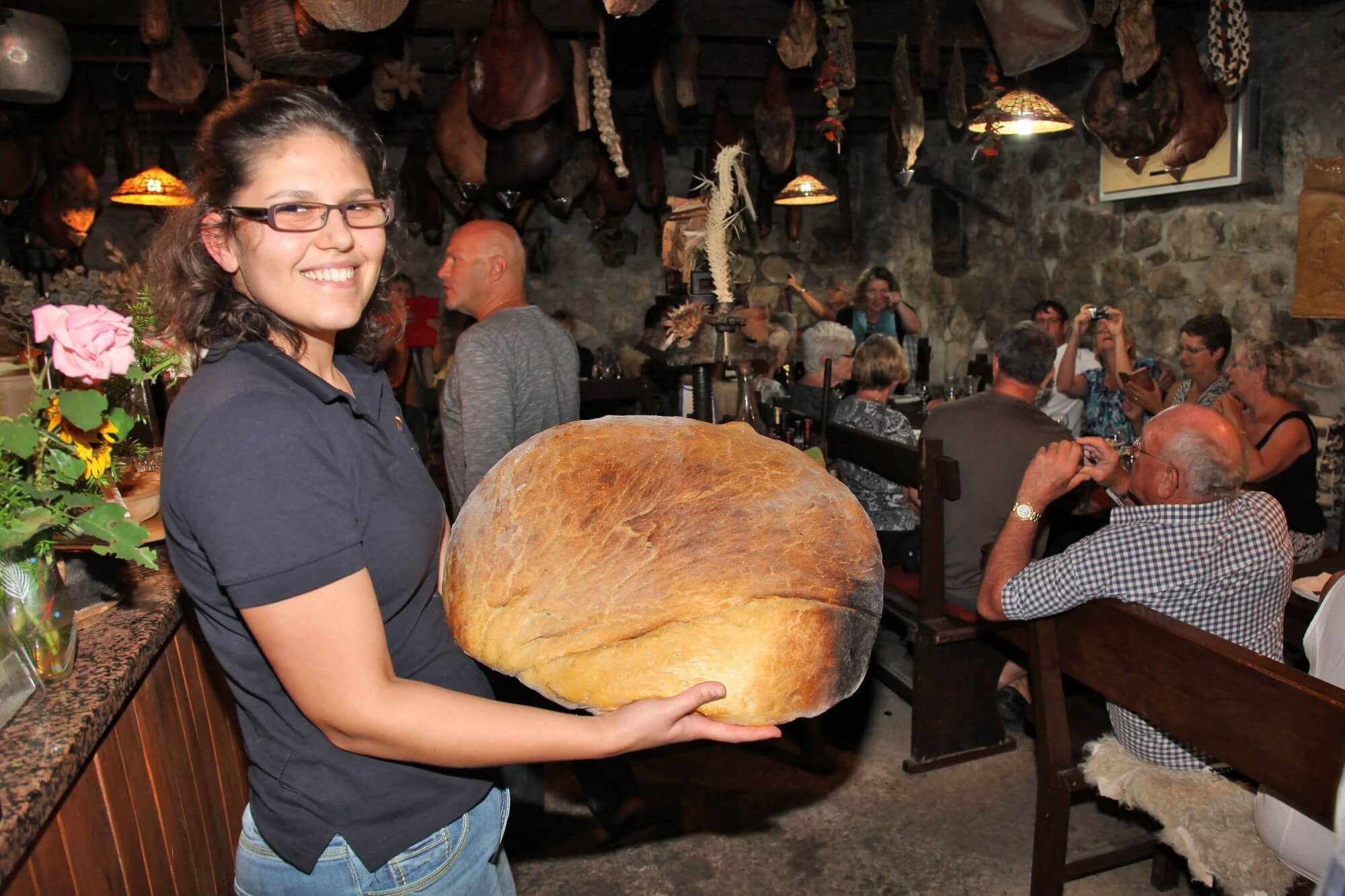 Bread from the peka at Agroturizam Antunović on Pelješac
Bread from the peka at Agroturizam Antunović on Pelješac
Seoski Tourism – translated as either village tourism or countryside tourism – is just that. Family farms that offer hospitality. These are some of the most homely and most welcoming accommodation experiences you can have in Croatia. Offering sights and sounds, tastes and flavours that you can't find anywhere else, visits or stays in Seoski Tourism places have long been loved by locals for weekend breaks or holidays outside peak summer. But, increasingly, these authentic Croatia experiences are being discovered by international visitors.
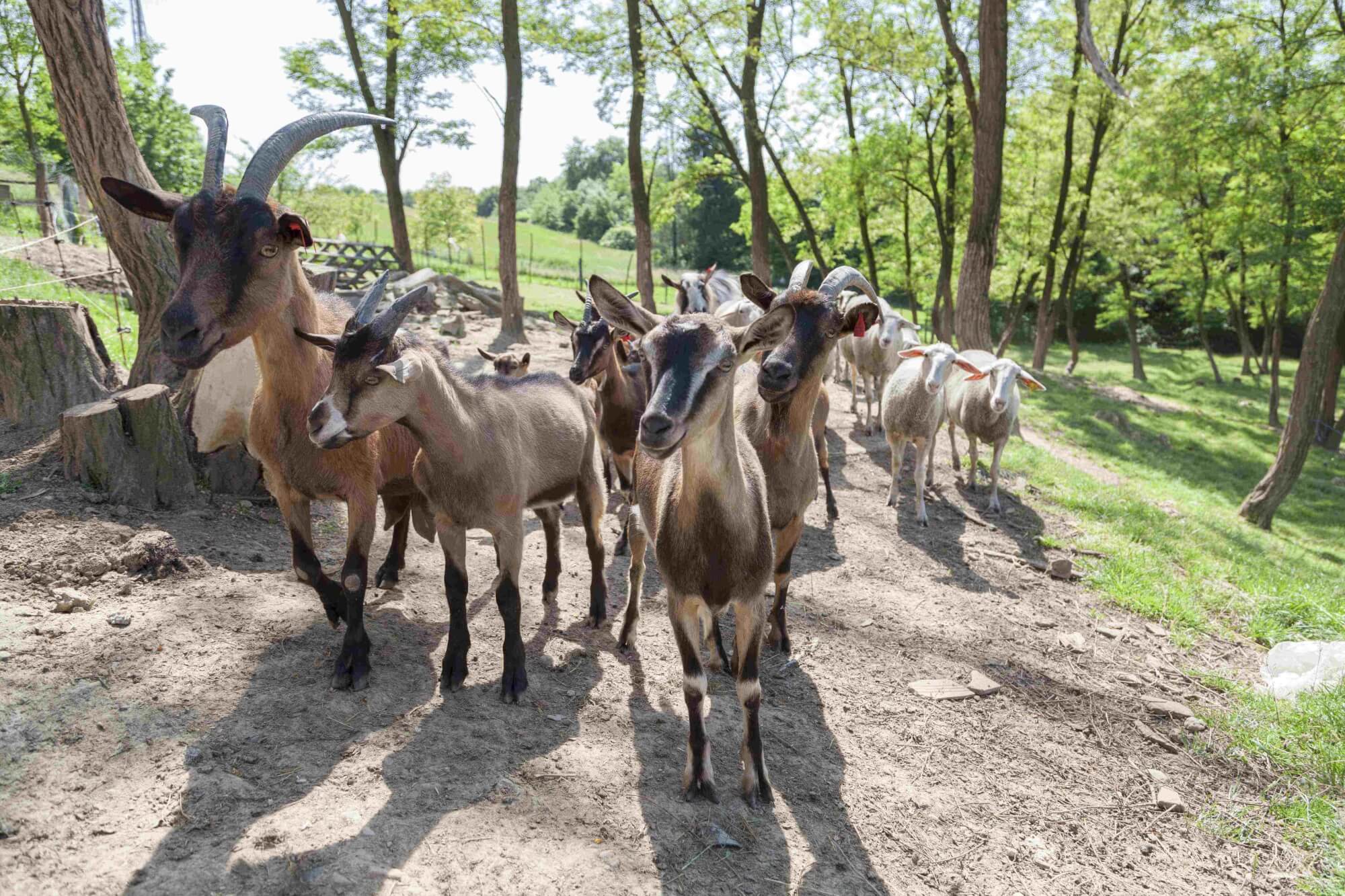 Moslavina goats at Kezele family farm © Davor Konjikušić
Moslavina goats at Kezele family farm © Davor Konjikušić
One institution trying to facilitate the growth in interest is Udruga ruralnog turizma Hrvatske - Croatian Rural Tourism Association. Since it was formed in 2016, they have tried to bring together Croatia's family farm hosts, to promote them and educate them, and to build bridges between these independents and tourist boards, tourist agencies, educators and even the wider world outside Croatia.
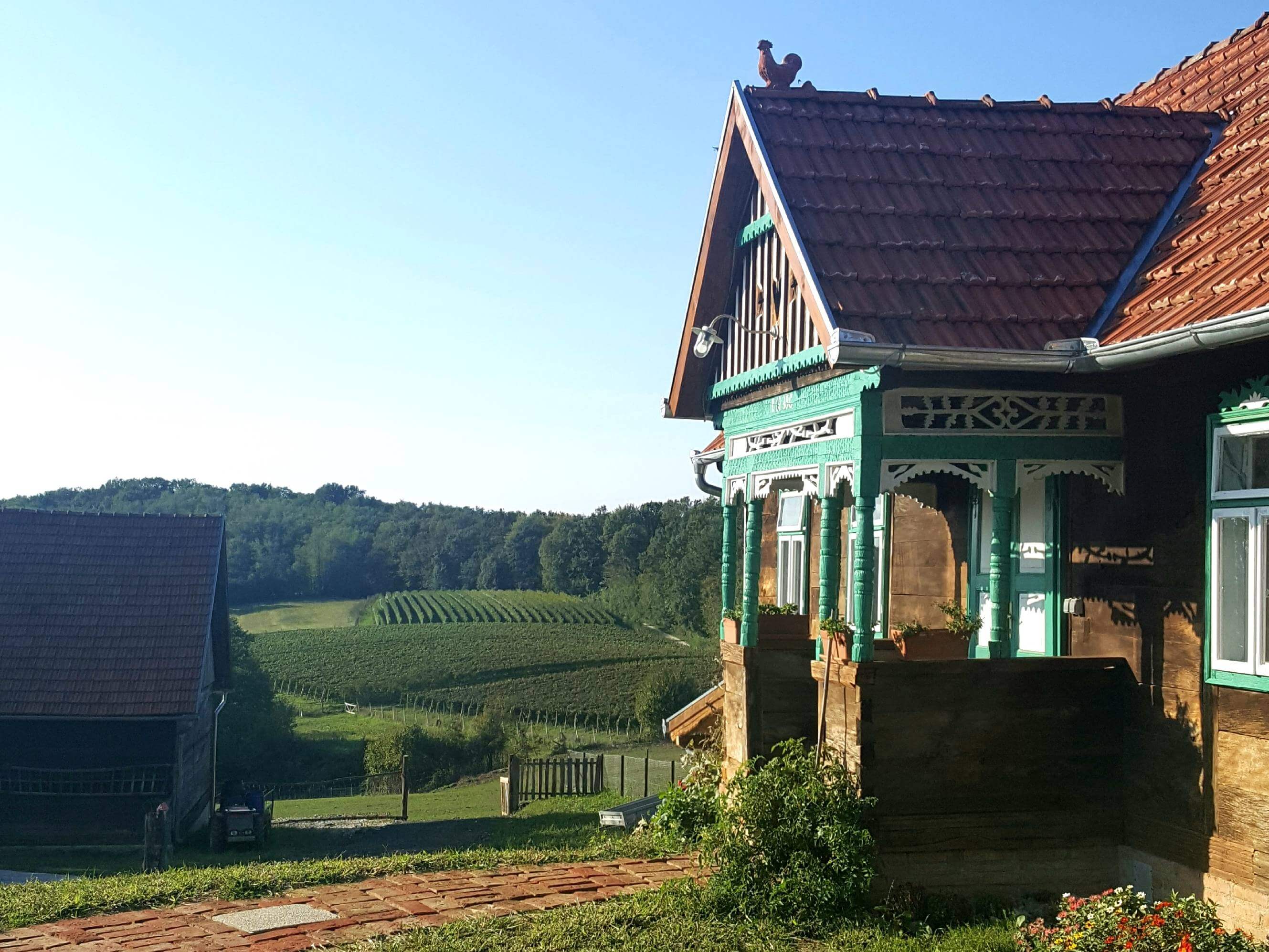 Seoski turizam Kezele in Šumećani, on the border of Zagreb County and Bjelovar Bilogora County © Davor Konjikušić
Seoski turizam Kezele in Šumećani, on the border of Zagreb County and Bjelovar Bilogora County © Davor Konjikušić
Based in Ivanić-Grad, Zagreb County, the Croatian Rural Tourism Association is currently touring the length and breadth of the country, holding workshops with as many Seoski Tourism family farms that will come. And if the farmwork doesn't allow them free time, then they can attend Croatian Rural Tourism Association workshops online.
On the eve of the association's online Seoski Tourism workshops for Central Croatia and Slavonia, TCN interviewed Aleksandra Kuratko, secretary of Udruga ruralnog turizma Hrvatske, to find out more about Seoski Tourism in Croatia.
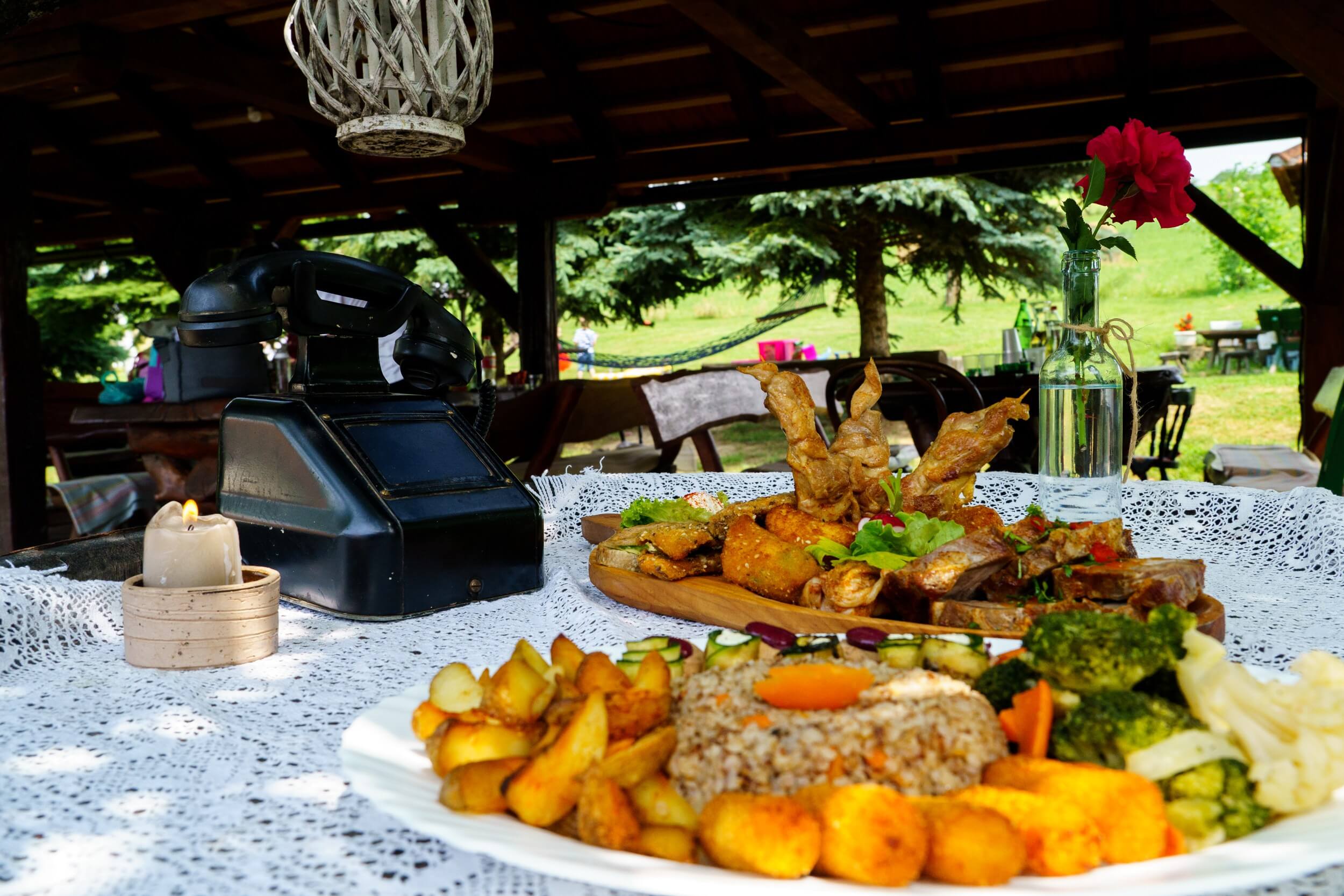 Prigorje specialties at Rakić family farm
Prigorje specialties at Rakić family farm
My name is Aleksandra Kuratko and I am secretary of Udruga ruralnog turizma Hrvatske. As an association, we are 5 years old.
We have 35 members, most of whom are service providers in what we call Seoski Tourism. We also have several tourist boards and two educational institutions as members.
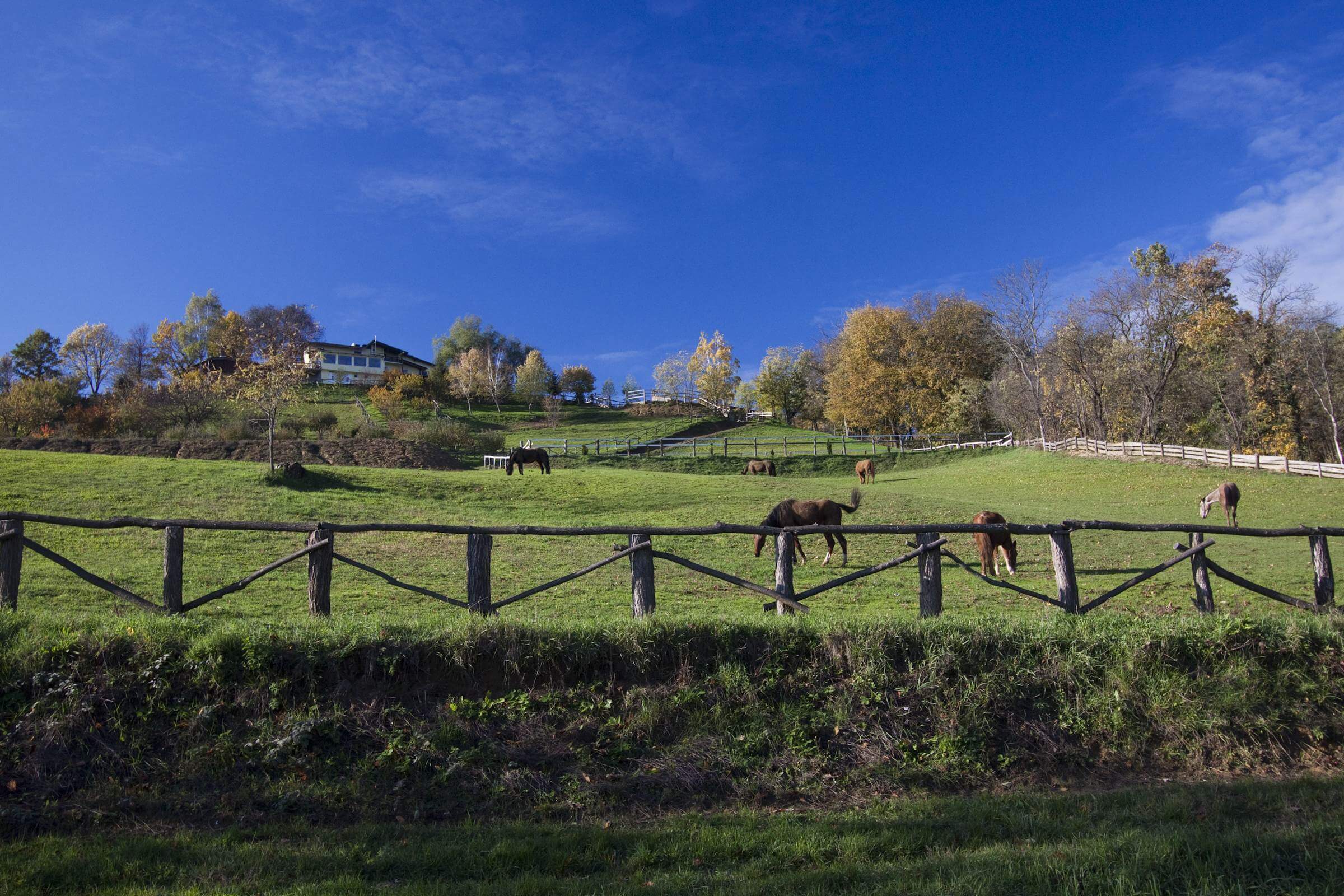 Bilogora horses in autumn at Agroturizam Na malenom brijegu © Vladimir Vlajinić
Bilogora horses in autumn at Agroturizam Na malenom brijegu © Vladimir Vlajinić
Seoski tourism is not quite the same as rural tourism, because rural tourism is many different types of tourism that happen in rural areas. Seoski tourism - which you might translate as village tourism - is quite specific. We assemble people who work in agriculture and who, at the same time, are also offering hospitality. In English, you might call them Farm Stays. Or Agro-tourism – a merging of agriculture and tourism.
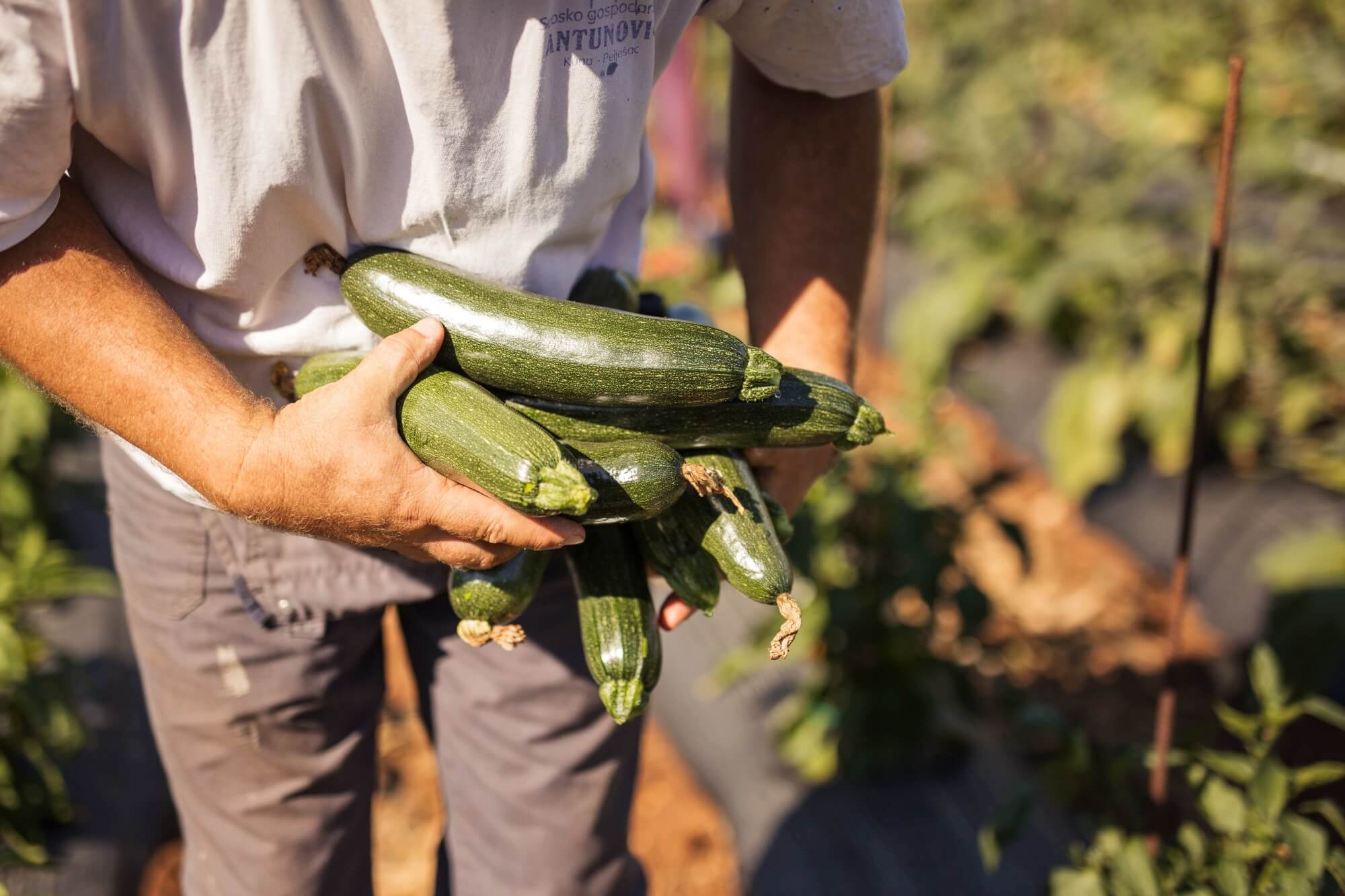 Fresh vegetables at Agroturizam Antunović on Pelješac
Fresh vegetables at Agroturizam Antunović on Pelješac
People who work on agricultural estates often take care of local cultural heritage. For example, they might maintain and renew traditional wooden or stone houses. Many also have etno collections, in which they preserve different objects from their region. Some of these objects might have been used in agriculture and households hundreds of years ago. So, they are preserving the cultural heritage of Croatian villages. This is what we call material cultural heritage. But, there's another kind.
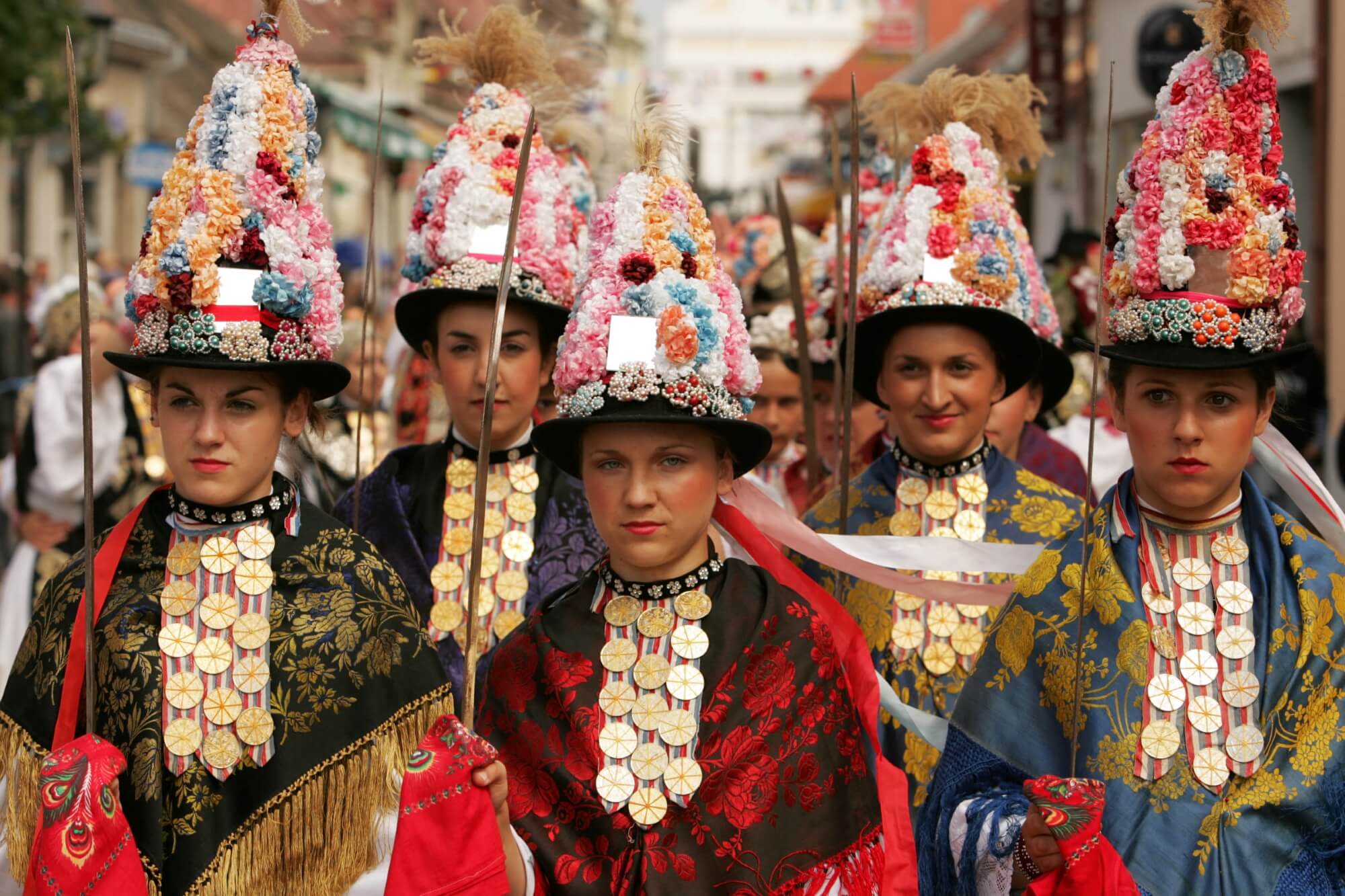 Cultural heritage preserved in one Slavonian village © Mario Romulić
Cultural heritage preserved in one Slavonian village © Mario Romulić
Non-material cultural heritage is also a part. That might be preserving old recipes of traditional, regionally-specific dishes. Or, it might be showcasing the songs and dance of local music.
We are currently running a project which is supported by the Croatian Ministry of Tourism and Sports in which we hold 37 Seoski Tourism workshops in the field all over Croatia. There will also be around 15 online workshops. The workshops are aimed at colleagues who currently operate in Seoski Tourism – they work in agriculture and offer hospitality. Also invited are local tourist boards and local action groups.
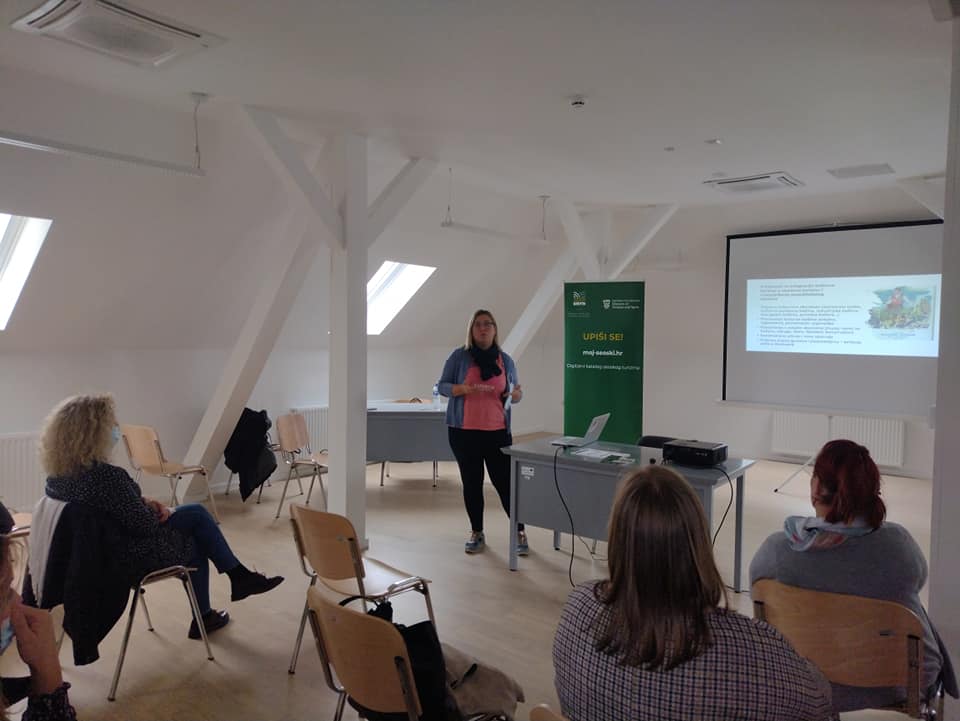 Photo from URTH workshop in Slatina
Photo from URTH workshop in Slatina
So far, we conducted 20 workshops in the regions of Central Croatia, Slavonia and Baranja, and Podunavlje. From next week until the end of the year, we will conduct the workshops in Istria, Kvarner, Lika and Dalmatia. Some service providers were not able to attend earlier workshops, because of work commitments of Covid. So, we decided to also offer access to the workshops online. Tomorrow is our first online workshop for Central Croatia and on Friday it's the online workshop for Slavonia.
These workshops are interactive discussions between our association, service providers and all other stakeholders. We discuss the legislative framework, which can be extremely complex. We talk about new trends in tourism for the post-pandemic era. We also discuss the importance of integrating cultural heritage in digital promotion.
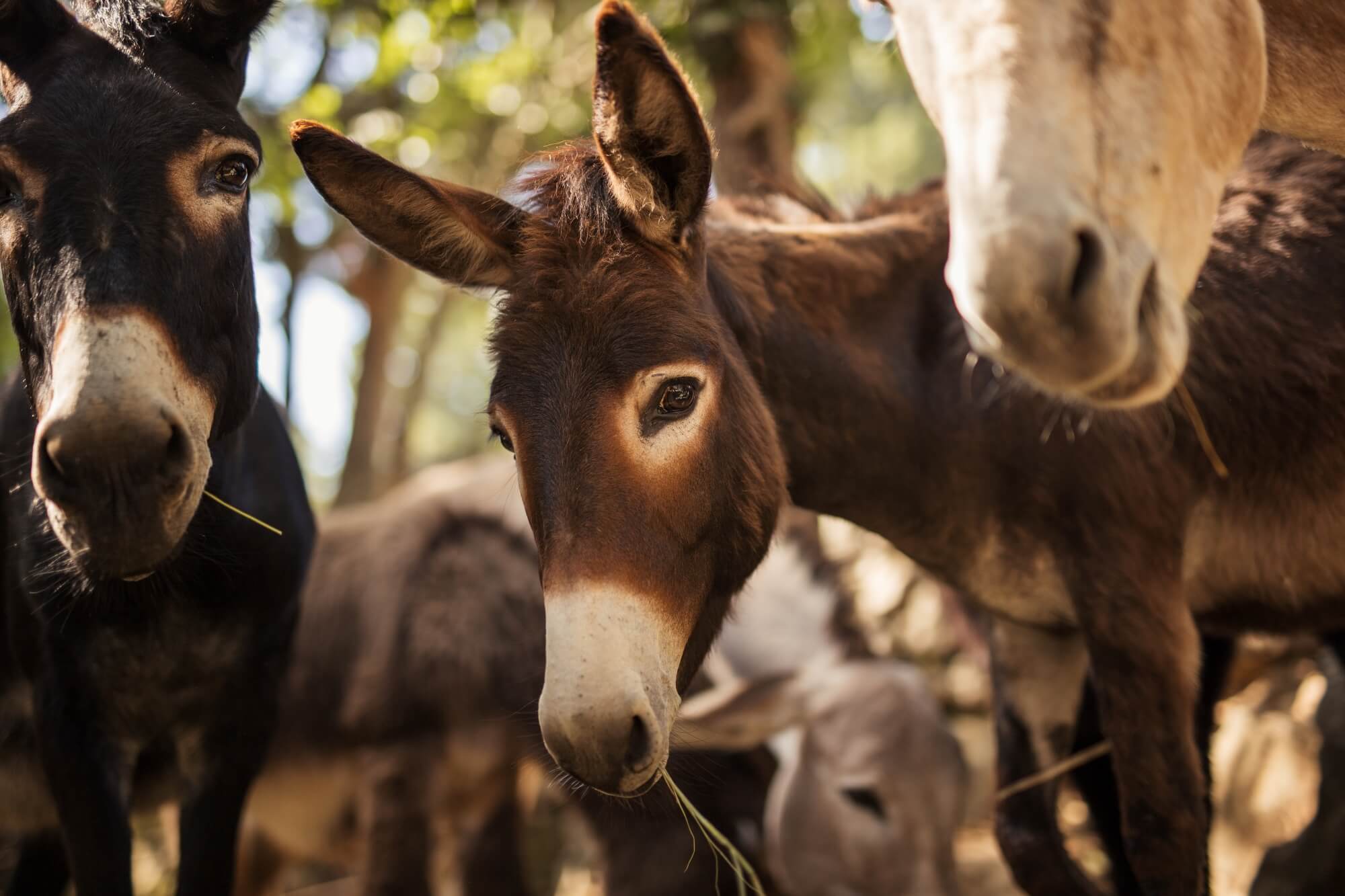 Donkey farm at Agroturizam Antunović on Pelješac
Donkey farm at Agroturizam Antunović on Pelješac
For the legislative framework, we have initiated the formation of a working group for the development of Seoski Tourism, which is now operating in the Croatian Ministry of Tourism and Sports. So, at the workshops, we ask if anyone is having issues. We collect the responses and address them in the working group.
Part of the workshop is the presentation of a new web application of Seoski Tourism, which we have developed with Croatian Ministry of Tourism and Sports. It has two purposes. One is to create a digital catalogue of Croatian Seoski Tourism. You can see region by region some of the Seoski Tourism options – currently around 40, those who have already enrolled.
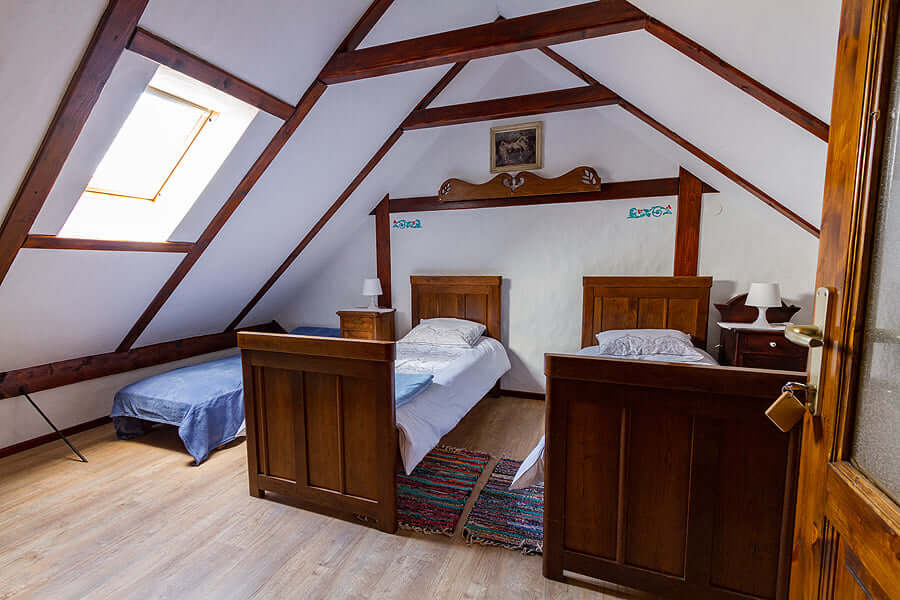 Podravina Etno rooms at Zlatni klas Otrovanec
Podravina Etno rooms at Zlatni klas Otrovanec
A version of the app is currently available on the website of the National Tourist Board. But, they are building a new website. The forthcoming version of the catalogue will likely be more user-friendly with many more functions and options. On the new website, Croatia's Seoski Tourism options will be detailed in many different languages. It should be a great resource not only for tourists but for travel agencies, journalists like you and for educational institutions. That's the reason we are devoting time in our workshops to encourage Seoski Tourism providers to enroll. We are just at the beginning of the process.
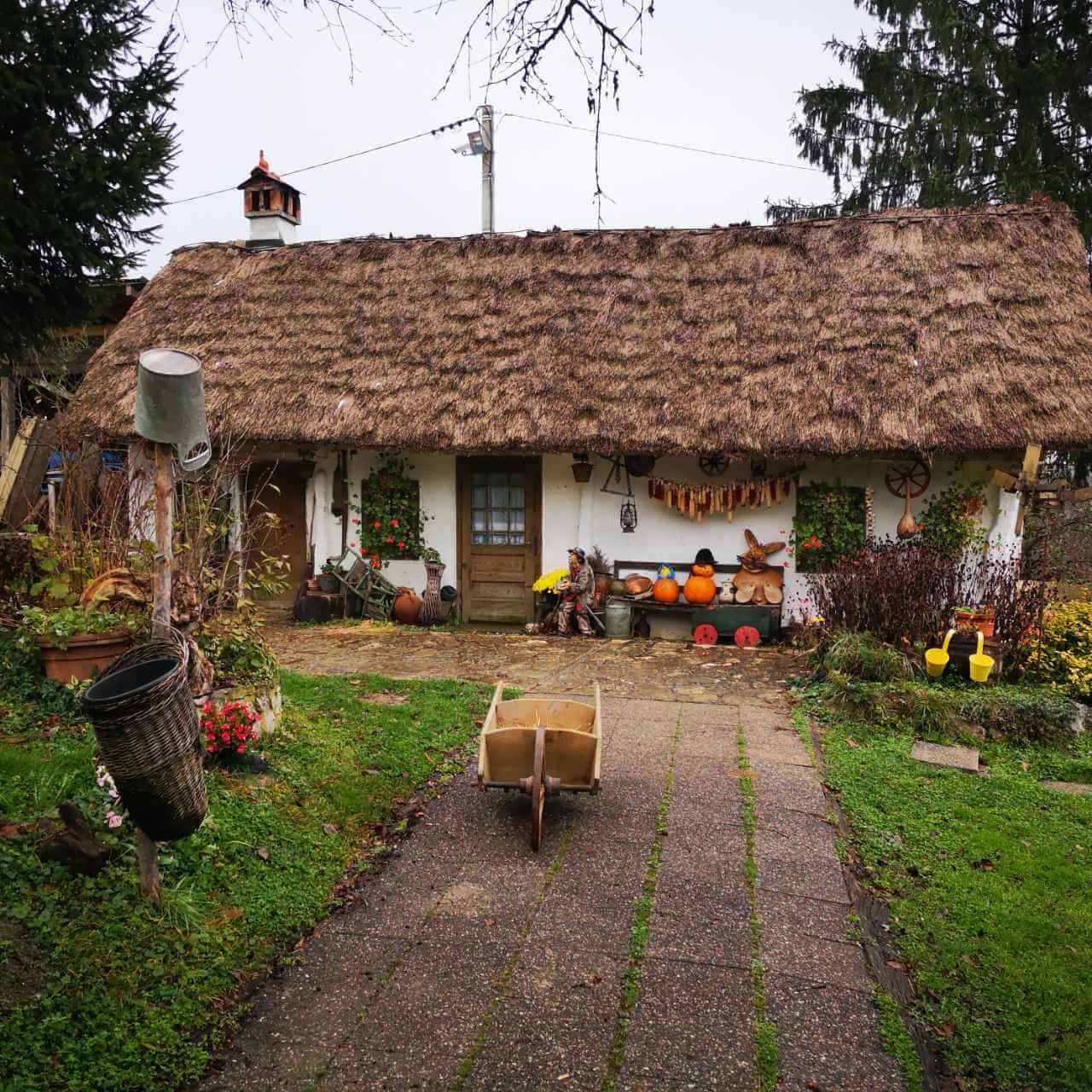 Grešna pilnica in Zagorje © Jasna Podboj
Grešna pilnica in Zagorje © Jasna Podboj
The second purpose of the app is to collect information about the service providers. This info will be used by our working group when defining a Croatian model of Seoski Tourism. So far, we have taken examples from Slovenia, Italy and other countries that are successful with Seoski Tourism. But, these models were entered into our legislative system without fully considering our distinct business and cultural environments. That is now about to change.
We are very happy that, following many years of partially successful advocacy, there is now political will at a ministerial level to really shape things up, to change the laws and regulations in order to facilitate Seoski Tourism. We want to encourage more Seoski Tourism, not to have people from agriculture being turned away because of the difficulty of the process and bureaucracy.
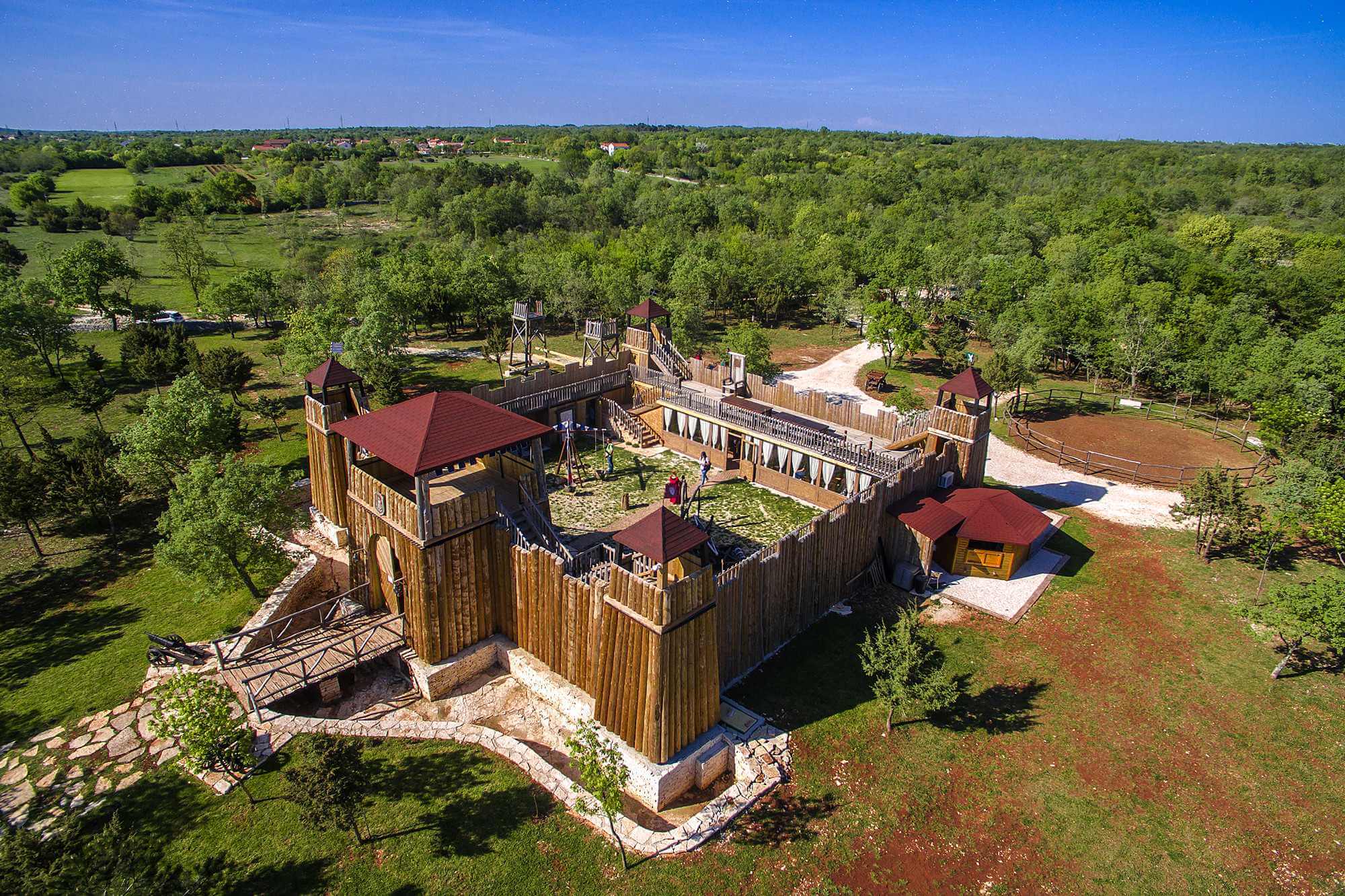 Medieval Theme Park San Michael © Silvia Otočan
Medieval Theme Park San Michael © Silvia Otočan
You said part of the workshops will focus on new trends. What are some of these?
Research has been done by a working group that is developing a new tourism strategy for Croatia. It's called Strategy for Sustainable Tourism to 2030. Under the auspices of this group, a number of research fields have been analysed.
The collected data shows that a huge percentage of tourists are now more inclined to eat locally grown and healthy food. They want to spend their time on estates that are run in accordance with ecological principles. So, they really care about issues like how waste is disposed of etc. They also pay a lot of attention to culture. They are curious to learn exactly how we are living, how we are working and how we produce things. They want to learn about our society and culture. And, importantly, they really care about how they spend their money. Above all, they want to spend money in areas that can help support local communities.
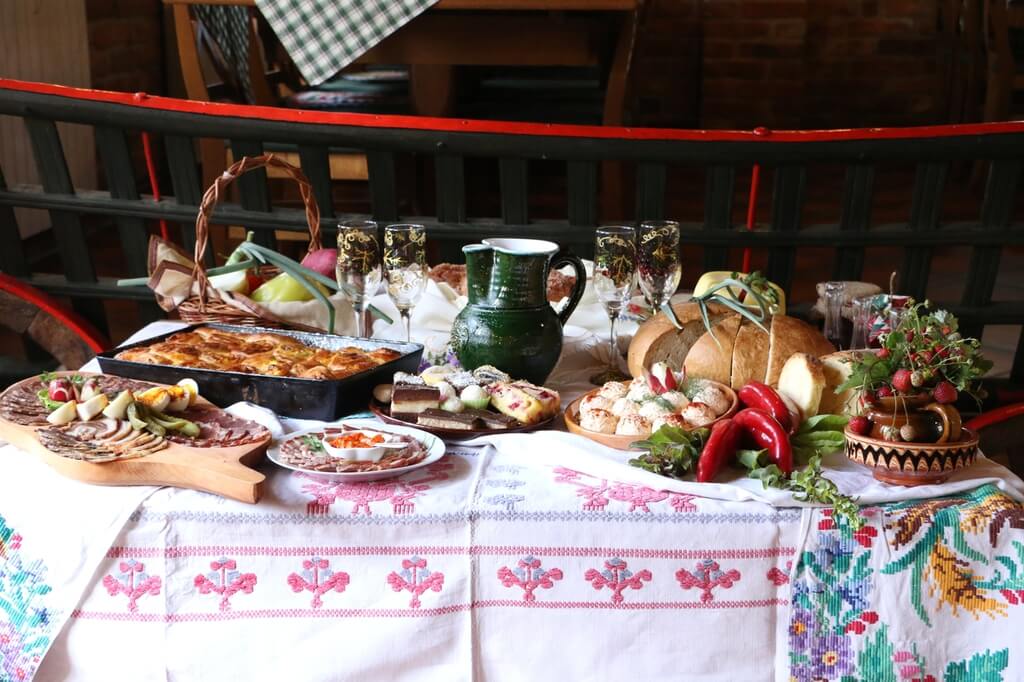 Prigorje Breakfast at Rakić Family Farm
Prigorje Breakfast at Rakić Family Farm
For us, this is really important. Because Seoski Tourism answers these demands to an incredibly high level. We do produce local, healthy food. Not only on the agricultural estates where you can experience Seoski Tourism, but also from their neighbours who just do agriculture. We are concerned with ecology, we protect cultural heritage and the money spent in Seoski Tourism stays in local communities, where it has very beneficial effects.
In the digital promotion part of the workshops we are trying to persuade people about the importance of their online presence. Basically, these days, if you're not online, it's almost like you don't exist. So, we try to explain the importance of having good-quality photos, short videos and a regular online presence.
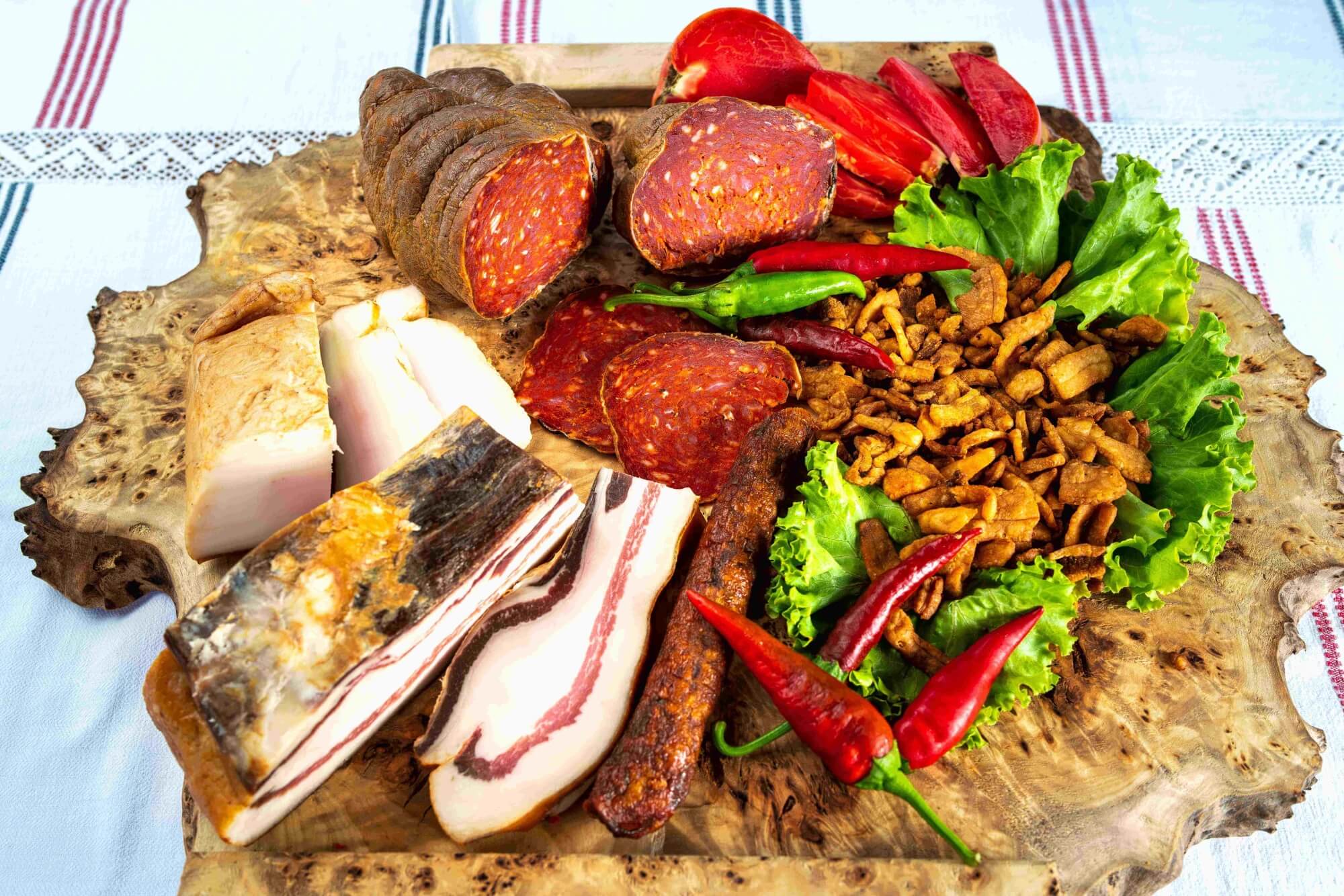 Kulen, čvarci and other specialties at Baranjska kuća © Denis Despot
Kulen, čvarci and other specialties at Baranjska kuća © Denis Despot
That's interesting. In some cases, it might be like two different worlds colliding - people who work in a traditional industry and a traditional environment having to adapt to a very modern way of operating. There's also another potential collision when providers learn of the expectations within modern tourism. Because these people can no longer just work in agriculture. To operate in Seoski Tourism, you're also very much expected to also be a host.
Yes. All of our current service providers who are successful within Seoski Tourism are also great hosts. It's essential. You can see it in almost all of the reviews for this kind of tourism. Guests come for the food and drinks and surroundings, yes. But, what they value the most, what they remember the most, is the host part of the experience. On the estates of Croatian Seoski Tourism, guests are welcomed like family. Across all of Croatian tourism we are expected to be good hosts. It's part of our reputation and the reason why many people come here from all over the world. In Seoski Tourism, it is vital we live up to those expectations.
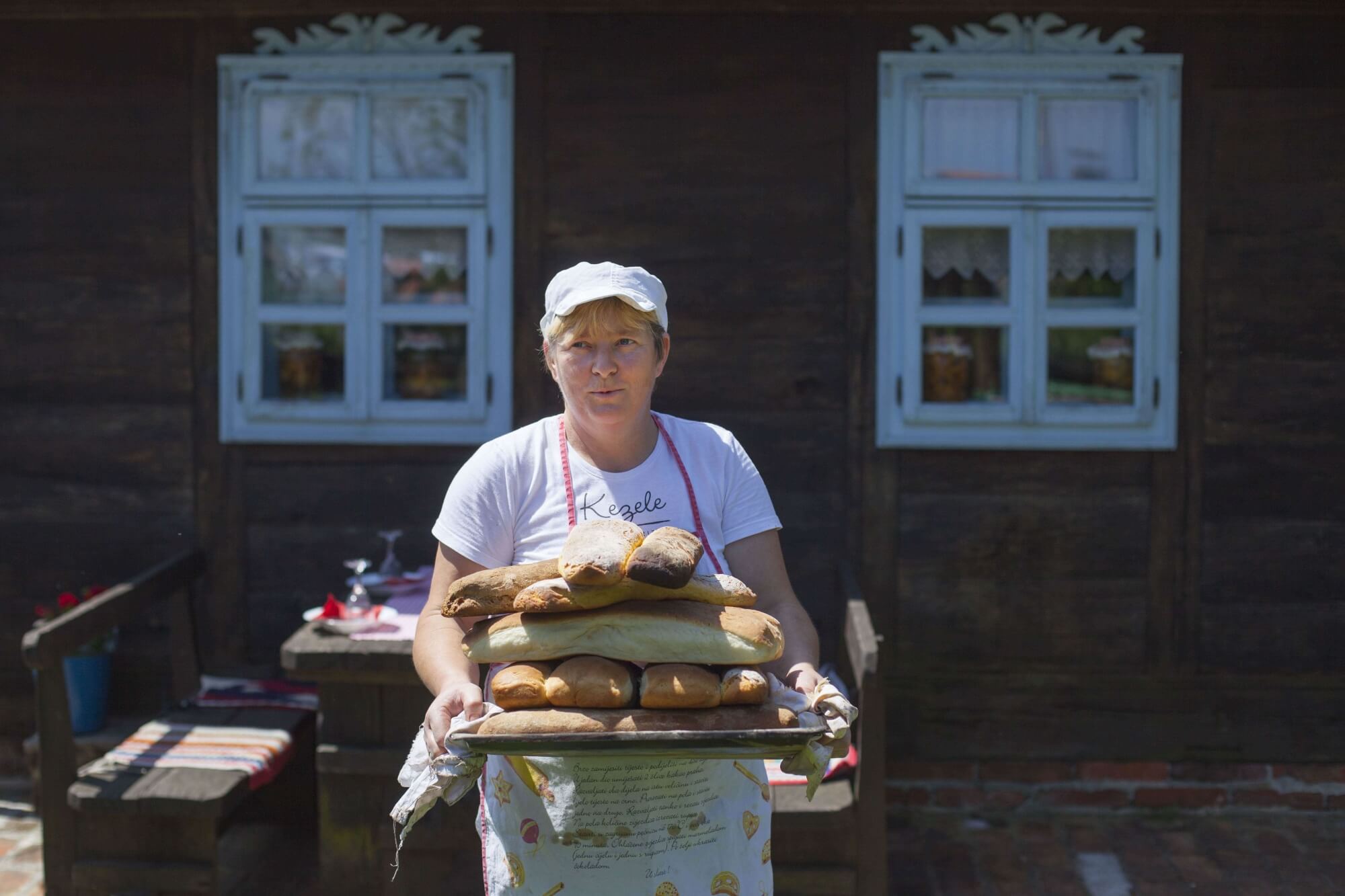 Kezele family farm © Davor Konjikušić
Kezele family farm © Davor Konjikušić
Another aspect of this, which is a more recently-observed element, is that visitors often want an insight into the actual lives, even the personalities of their hosts. They want not only to taste the homemade sausages you make, but they also want to know how you do it, where you do it, how you learned to do that. When they go to Spain, they want to know how the people there make their wine. And, when they come to Croatia, they want to learn how we do it here.
So, all in all, those of us in Seoski Tourism are really busy. We are in agriculture, yes, but we are also in tourism and we are also online. With this more recently-observed aspect, we will need to try and devote even more time to our hosting. It can be difficult to balance the demands on your time. But, in our workshops, we are trying to persuade people to talk more about themselves, their lives, their cultural heritage. And, if there isn't time to do everything themselves, then to involve different and often younger generations of the family. Sometimes within the hosting or alternatively just with the online promotion and presence.
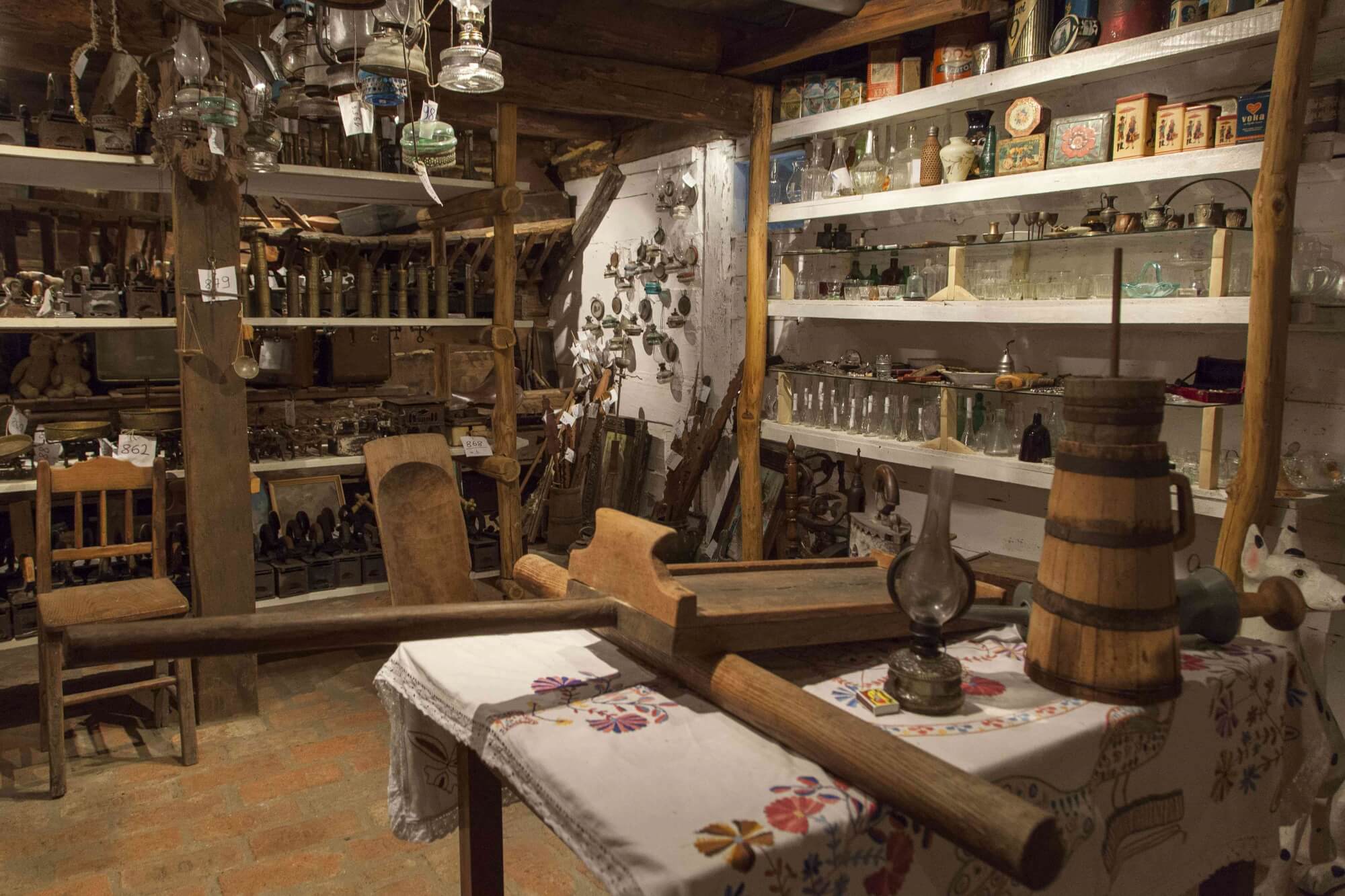 Kezele family farm ethno collection © Davor Konjikušić
Kezele family farm ethno collection © Davor Konjikušić
I've visited some family farms that were right at the start of their journey with Seoski Tourism and they seemed surprised that I was at all interested in what they do and how they do it. I think maybe they thought I was a bit crazy.
Yes, that is a response we sometimes also see at first. I think it's because our generation takes a lot of things for granted. We sometimes think that what we do is just what we do. We are not so good at showcasing it. “Why would I show someone how I make my cheese? I make my cheese like my grandmother used to make it” But, for those who open their doors to Seoski Tourism, inquiries about how they do what they do are only increasing. So, they seem to appreciate how we advise them in the workshops.
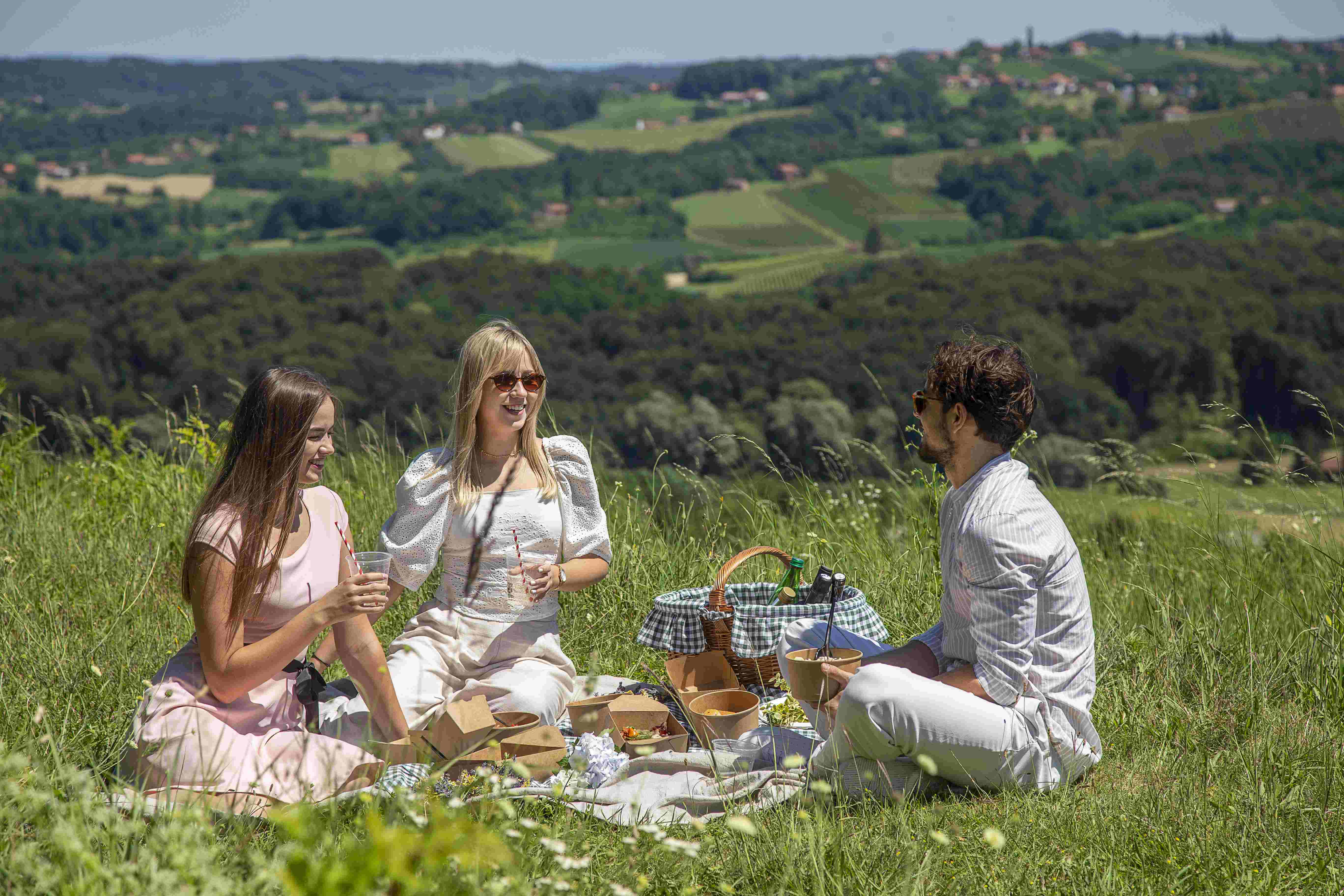 Picnic by Restaurant Međimurski dvori © Igor Nobilo
Picnic by Restaurant Međimurski dvori © Igor Nobilo
We are trying to let our producers know that Seoski Tourism is not just a platform to sell their produce and an overnight stay, but it's a full experience they can sell. There are agricultural farms in Austria that are established in tourism that you must pay only to visit. Of course, that doesn't happen currently anywhere in Croatia, even though some of our Seoski Tourism estates have sections that look like museums.
Some of these aspects are very new. And the feedback is great. I truly believe there are hidden treasures to be discovered in some Croatian villages. We are here to tell that story.
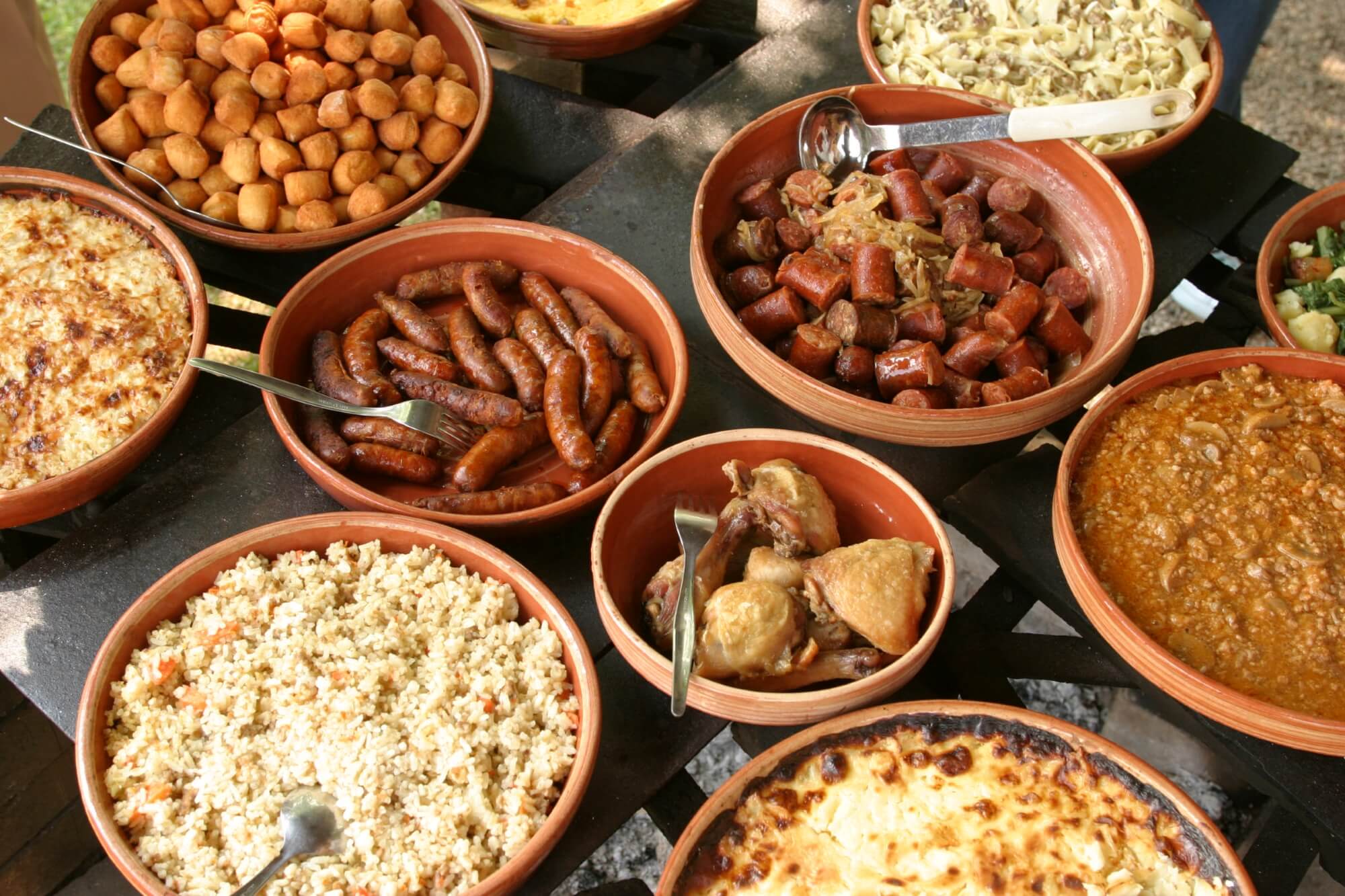 Selection of food from a Slavonian village © Mario Romulić
Selection of food from a Slavonian village © Mario Romulić
What is so rewarding about Croatian Seoski Tourism that international visitors would want to go to a traditional farm in some inland village instead of lying on the beach in Dalmatia for 14 days?
People come because they really want to see a different side of Croatia. And, there are many different aspects of Croatia to discover – not just Seoski Tourism, but also National Parks and Nature Parks. All of our current trends show us that more and more tourists are willing to come inland from the coast or to explore a different part of Croatia – inland Istria, for example, or continental Croatia.
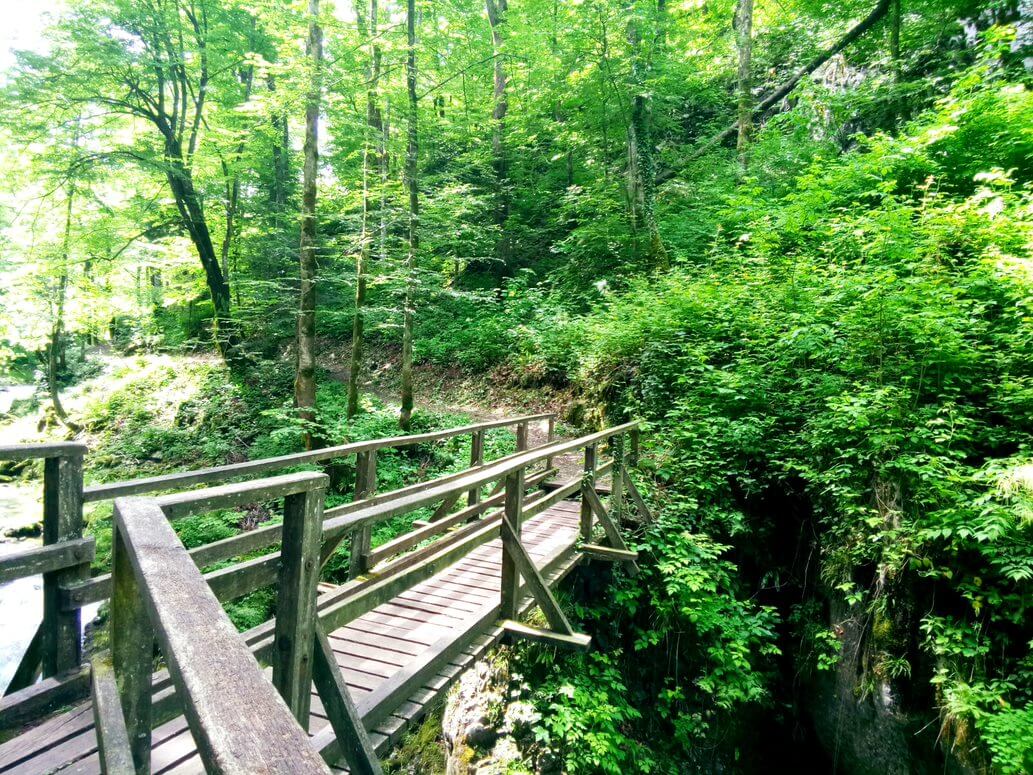 Kamačnik river canyon © Aleksandra Kuratko Pani
Kamačnik river canyon © Aleksandra Kuratko Pani
They really want to try authentic, local food. They want to eat healthy, to know what they are eating and how it is made. And, they want to experience flavours that are different from the usual ones they get from the supermarket.
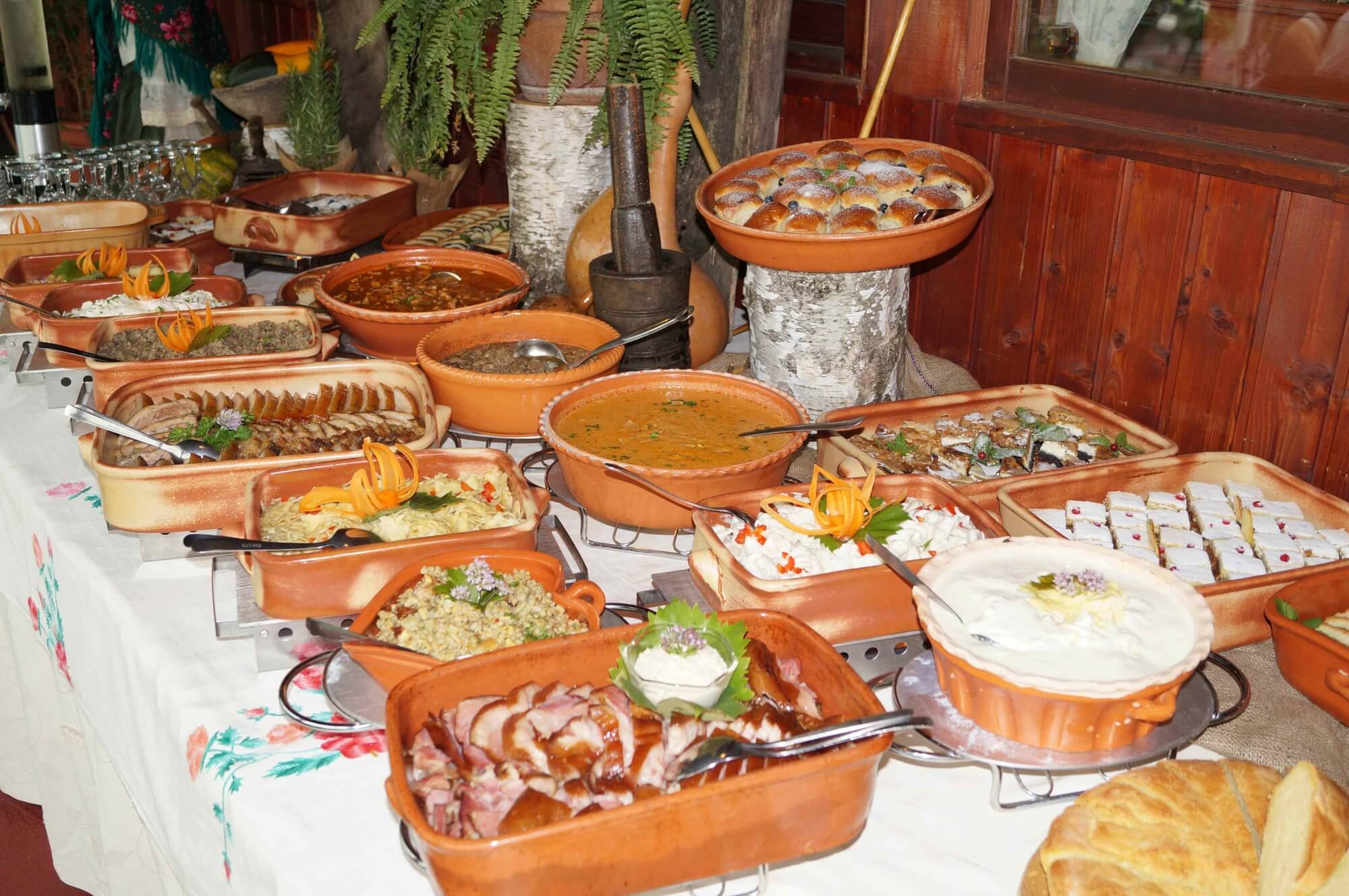 Traditional Međimurje table at Etno restaurant Međimurski dvori
Traditional Međimurje table at Etno restaurant Međimurski dvori
Also, I would say that with Seoski Tourism, people get to know better an authentic version of Croatia and its culture. It's a story we hear very often from our members. Some of them are visited by large groups from cruisers. These are people who might be on a cruise on the Adriatic and who journey inland for a day trip. Or, it might be a group who are cruising the Danube and disembark to visit a family farm in Slavonia, Baranja or Srijem.
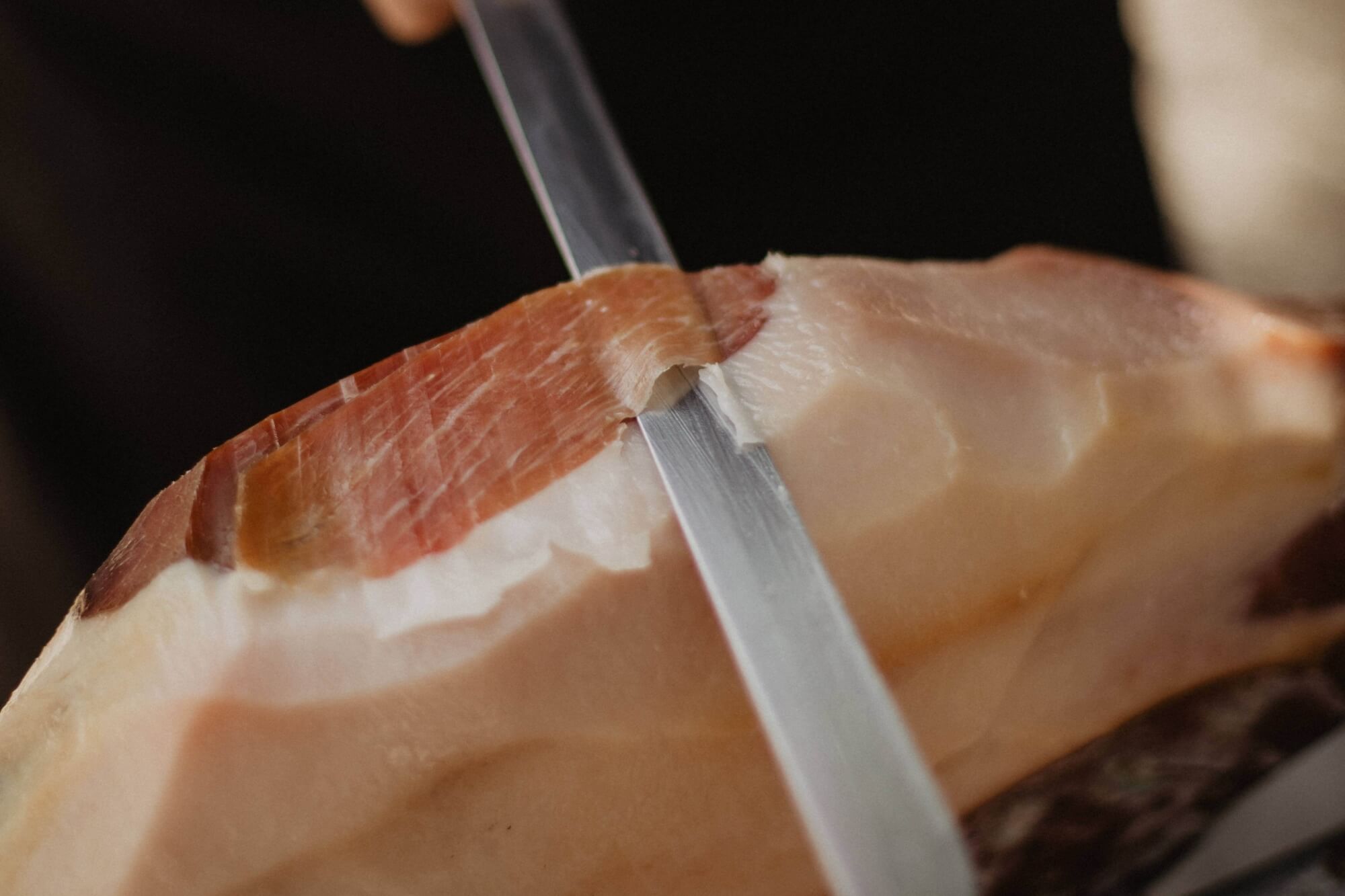 Prosciutto from Drniš at Agrotourism Kalpić © Ivana Kalpić
Prosciutto from Drniš at Agrotourism Kalpić © Ivana Kalpić
When they visit farming estates on day trips, it's very often a huge 'wow' moment for them. For many, in their minds, Croatia is simply sun and sea. And that's not entirely their fault. We, as a country, have done very little until now to promote alternative sides of Croatia. The visitors experience these wow moments because of the hospitality they receive and because of the tangible aspect of the visit. This is a modern aspect – people want to touch things, know how things feel, taste, smell. They want to ride on horses or feed them. Or take part in cultural activities. These parts of a visit to Seoski Tourism are very difficult to experience anywhere else.
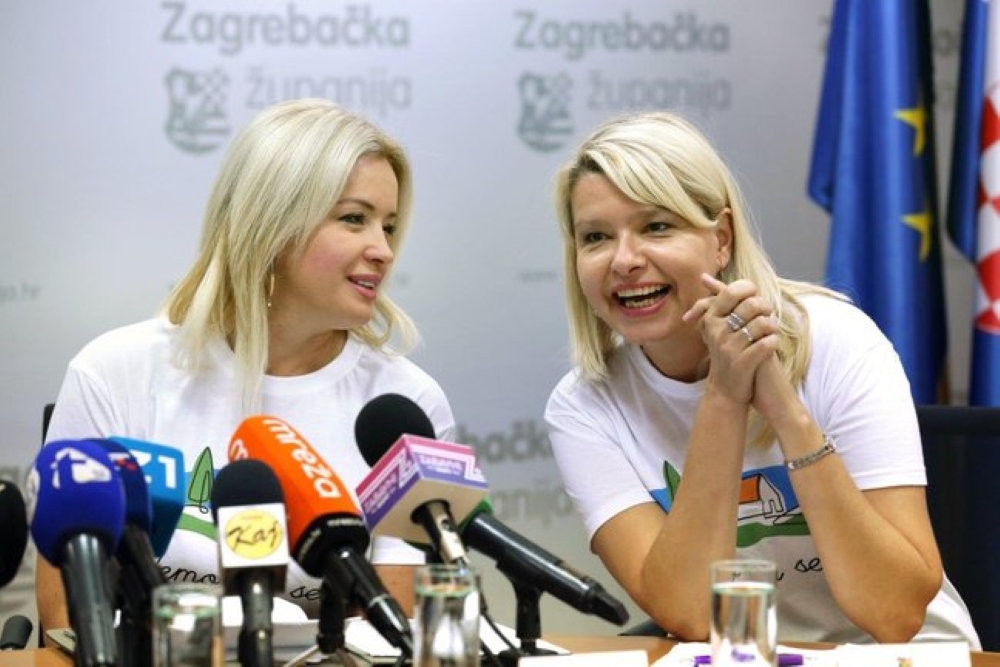 (left) Ivana Alilović, director of Zagreb County Tourist Board (right) Aleksandra Kuratko, secretary of Udruga ruralnog turizma Hrvatske (Croatian Rural Tourism Association) © Zagreb County
(left) Ivana Alilović, director of Zagreb County Tourist Board (right) Aleksandra Kuratko, secretary of Udruga ruralnog turizma Hrvatske (Croatian Rural Tourism Association) © Zagreb County
Udruga ruralnog turizma Hrvatske's online Seoski Tourism workshops begin today and their physical workshops continue next week in Istria.
If you'd like to read more about rural tourism in Croatia, then look here


